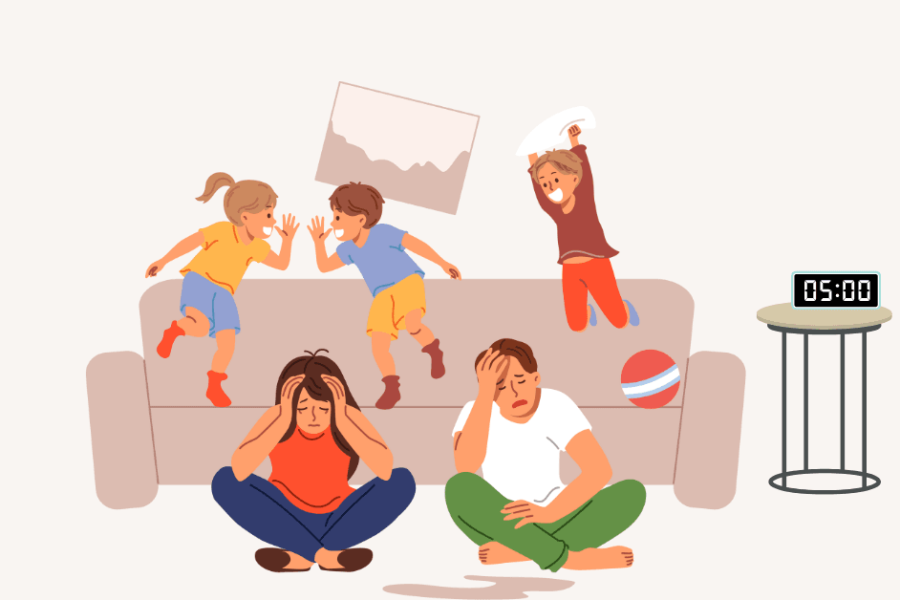It’s a reality many parents know all too well those early morning wake-ups with newborns and young children are tough! While the love for our little ones is boundless, the stress and exhaustion that come with pre-dawn wake-up calls can be overwhelming. Many parents find themselves asking, “What am I doing wrong?” even after trying everything to push for a later start to the day. But don’t worry there are strategies to help encourage later wake times.

Assess Their Sleep Environment
Creating the perfect sleep environment is key. The room should be at an optimal temperature not too hot and not too cold. A consistent, gentle white noise can help mask any disruptive sounds. Additionally, using blackout curtains can keep the room dark, signalling to your child that it’s still time for sleep. For older children, add a clock and repeatedly teach them that wake-up time is 7 AM and you can leave your bed once the clock strikes that time.
Establish a Consistent Bedtime Routine
Repetition and predictability are essential for babies and children. A consistent bedtime routine helps them understand what to expect and feel secure. Despite attempts by toddlers and older kids to push boundaries, they actually thrive on structure. Choose activities that promote relaxation, such as a warm bath, gentle massage, and story time. For older children, you could also give melatonin to easy body. Performing these activities in the same order every night helps your child predict what’s coming next, making the transition to sleep smoother.
Monitor Daytime Naps
Daytime naps play a crucial role in nighttime sleep. Ensure that nap lengths are balanced not too short and not too long. Too much daytime sleep can lead to overtiredness at night, as can insufficient napping. Adjust the length and timing of naps to help your child feel “ready” for bed.
Adjust Bedtime
If the above steps aren’t making a difference, consider adjusting bedtime. Putting your baby down earlier can help combat overtiredness, which often leads to restless sleep. Pay attention to sleep cues, such as rubbing eyes or pulling ears, to determine the ideal bedtime.
Encourage Self-Soothing Skills
Self-soothing is a game-changer. When your child can self-soothe, they can go back to sleep independently and more quickly. Make sure your child is awake when they go to bed, so they learn to fall asleep on their own. This skill is crucial for them to be able to return to sleep if they wake up early.
Stick to Your Minimum
Set a minimum wake-up time. If your child wakes up at 5 am, resist the urge to assume they are ready for the day. Treat anything earlier than your minimum as a nighttime wake-up and encourage them to go back to sleep. Children are capable of sleeping more, and it’s important for their health.
Consistency and patience are vital when trying to shift early wake-up times. Each child is unique, but they all thrive on structure and boundaries. Remember, you’re doing a great job navigating the challenges of parenthood.

